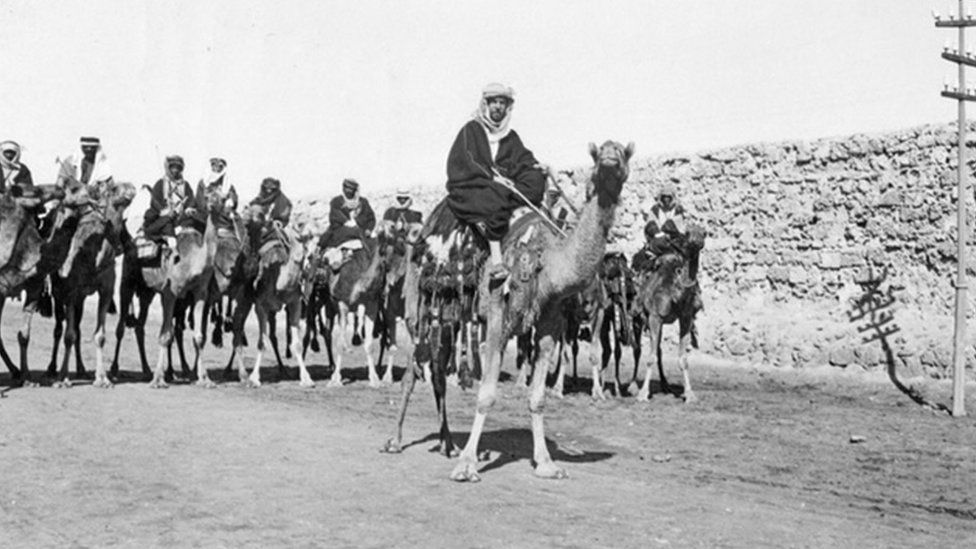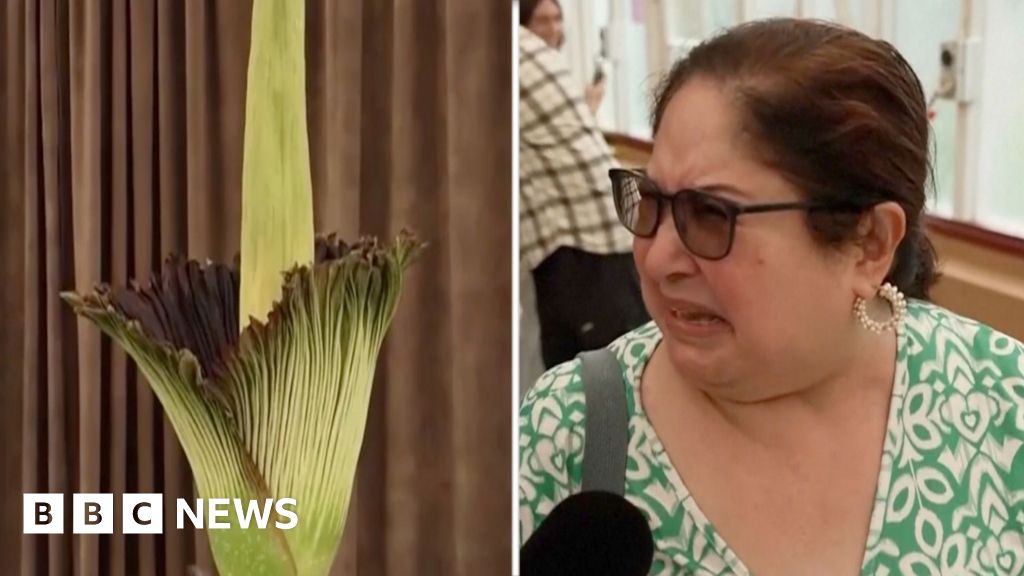ARTICLE AD BOX
By Frank Gardner
BBC security correspondent
 Image source, Philby family
Image source, Philby family
Harry St John Philby's mission earned him a Founder's Medal from the Royal Geographical Society
The Princess Royal has launched a daunting desert expedition to cross the Arabian Peninsula from coast to coast - her first public engagement since the funeral of her mother Queen Elizabeth II.
The Heart of Arabia expedition will retrace the 1,300km (813-mile) journey taken by the early 20th Century explorer Harry St John Philby, from the tiny fishing village of al-Uqair, on the Gulf, all the way across the Arabian plateau to the Red Sea port of Jeddah.
The team, led by the veteran British explorer Mark Evans, will be joined by Philby's Saudi granddaughter Reem when it sets off in mid-November, exactly 100 years after Philby's own epic trek.
"He is considered by many," says Mr Evans, "as one of the greatest early explorers of Arabia. He not only set out across uncharted land, but took time to record everything he saw."
Reem Philby has spoken of being drawn to "the stillness and constant movement of the desert at the same time".
"Just observing how nature controls everything in harmony and how we are the ones that have to adapt, makes one very humble."
Travelling solely on foot and by camel, the team aim to honour the memory of her grandfather, who was awarded the Founder's Medal by the Royal Geographical Society for the ground-breaking scientific data he gathered along his route, documenting a part of the world that was largely unknown to anyone outside the region at the time. He was presented the medal by King George V.
Image source, Philby family
Image caption,Harry St John Philby converted to Islam and became a trusted adviser to first king of modern Saudi Arabia
Harry St John Philby was sent to Arabia during World War One to assist T E Lawrence, also known as "Lawrence of Arabia", in his efforts to muster Arab resistance to Ottoman Turkish rule.
The journey he undertook resulted in new maps being drawn up, based on the detailed notes of everything he observed, from local wildlife such as wild gazelles, to even a vast crater left by a meteorite.
On arriving in Riyadh, which was at the time a tiny, dust-blown desert village rather than the sprawling metropolis it is today, he met the tribal leader Ibn Saud who went on to become King Abdulaziz, the first king of modern Saudi Arabia. Philby, who impressed his hosts by dressing and eating as they did, converted to Islam and became a trusted adviser to Ibn Saud.
Philby had a son by his first marriage - the infamous Kim Philby, who betrayed a list of MI6 secret agents in Eastern Europe to the Russians during the 1950s and 60s, sending untold numbers to their deaths before he fled to Moscow in 1963.
But in the Middle East, Harry Philby is remembered most for his friendship with Ibn Saud and his ground-breaking desert travels.
The searing heat, blinding sun, and arid winds that parch the throat and can drive sand and grit into the eyes, make the deserts of the Arabian Peninsula a tough place to survive in. I have witnessed for myself the terror of a Bedouin family on discovering that a lethally venomous saw-scaled viper had slithered into their camp.
Yet there is something about this inhospitable landscape that keeps drawing in British explorers.
Richard Burton, Charles Doughty, T E Lawrence, Gertrude Bell and Wilfred Thesiger all endured immense physical hardship in their quest to find something in the deserts of Arabia that was missing in their own country. Thesiger, in particular, spoke of the enduring friendship, loyalty and generosity of the tribesmen he travelled with.
Image source, Matthew Tomkinson
Image caption,Princess Anne visited the Royal Geographic Society on Tuesday for the ceremonial launch of the expedition
Unknown to some who gathered at the Royal Geographical Society in London on Tuesday for the ceremonial launch of the Heart of Arabia expedition, its patron Princess Anne has always been a keen fan of both geography and voyages of discovery.
She spoke with great enthusiasm about the importance of inspiring a younger generation with the discoveries that journeys like Philby's can bring.
"How did people live in the environment that he crossed?" she asked rhetorically. "What was different about it? And actually, what's perhaps even more important in modern terms, is to understand how much has changed, [compared to] what existed before."
Heart of Arabia is due to set off from just south of Bahrain on 15 November.
After pausing in the Saudi capital, Riyadh, the team will trek westwards for the more arduous part of the journey to Jeddah. Winter on that exposed, elevated and treeless plateau of central Arabia can bring bitter winds and even sometimes snow. The going underfoot can also be arduous, varying from black, volcanic larval rock to shifting, treacherous sand.
The expedition is expected to take around five weeks in total.

 2 years ago
25
2 years ago
25









 English (US) ·
English (US) ·